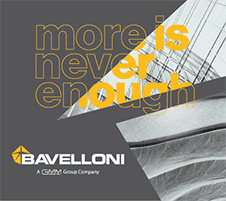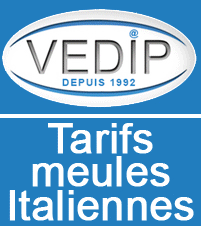Numerical control machine for flat glass processing
The CNC machines for glass are machines able to carry out all kind of jobs. The technology is trustable and the main evolutions have been done.
Because they are able to supply a huge range of different applications you could be interested to invest in a sophisticated machine, even if your market requires only the more common works. In this case you can not have the more convenient machine for the applications you need and moreover the machine will be less easy to drive and less fast.
So the first step is to draw up carefully (number of glass, minimum and maximum dimensions, thickness...) a list about
-the main jobs required by your market (cutting, internal and external polishing, engraving, drilling, writing, bevelling, disk cutting...)
-The applications it could be interesting to propose to your customers (number of glass, potential yearly turnover).
The idea is to choose the right CNC machine to carry out in the best conditions ( profit, easiness to use, cheapest maintenance) what your market requires.
The market is full of very sophisticated CNC machines where only 10 or 20% of the CNC machine's capacities are used.
Technorev de Bimatech
There are on the market 3 different kind of CNC machines depending the number of axes' spindles.
-The 3 axes (XYZ) allowing to carry out the majority of glass processing works ( cutting with milling cutter, drilling, internal and external polishing, writing...).
-The 4 axes (XYZ et C, axe allowing to drive the working angle for a tools on the vertical axe).
The C axe is mainly useful for engraving glass on the surface, for cutting with a disk ( shape or straight), for simple bevels, to engrave or to write on the glass edge and to obtain a top quality polishing with cup wheels.
-The 5 axes, allowing all kind of bevels and other complex works on glass.
The number of axes is the first criterion choice.
Be careful: one additional axe mentioned in option needs very often to change the spindle.
The second thing to decide is the maximum dimensions of glass you want to work.
Be careful: on machine brochure is often mention the axe's movements and not the useful maximum dimensions.
Once these 2 parameters decided, you can have a more precise idea about the machine you need and start to have a look on the potential suppliers.
Now you can study other important parameters:
1/Assistance
-Installation
-In case it is your first machine, or a really new machine or an operator without experience on CNC machine for glass it could be interesting to cut the training in several periods allowing your operator to learn the machine driving in the best conditions. (Be careful about the number of days for real training included inside the offer, and no the total days including installation, adjustment and training. Installation and adjustment can take more than one week).
-Assistance during the first months machine using
To drive properly such a CNC machine, an operator need several months. During this period you need to have a good assistance to learn quickly.
-Maintenance
The problems come mainly from mistake in drawing and programming. In these cases the CNC machine stops. Such problems can be easily solved by phone. A fast and efficient hot line by the CNC machine supplier is essential. But a real hot line. Not one from technician driving or giving another training at a customer premise.
So it is important to understand how your supplier is organized to answer (number of technicians, number of machines installed....)
2/The options:
What are the options available during the purchase and after.
The main interesting options are
-Engraving
-Bevelling
-Cutting with disk
-edging with cup wheels
-...
3/The software
4/The machine preparation
The solutions chosen are very important for the CNC machine productivity
-Installation of the glass on the CNC machine ( suckers positioning, reference pads...)
-Loading, unloading
-How to work with templates
-Adjustment for tools wearing
-…..
5/Costs for using (water..) and maintenance
The bevel
-Due to the glass flexibility, within 12 mm thickness in case of bevelling the glass must be sustained by a rigid and flat surface.
So you have to manufacture a template or to install suckers under the glass all along the part you are going to bevel.
-Such a machine bevels wheel after wheel. It is very slow. To have a good financial profit you have to carry out sophisticated bevels or to work on important thickness
-The final polishing ( water + cerium oxide) pollutes the machine water network. The cerium oxide is lost.
-The bevel programming is very often not easy and need an operator with very good experience.









